Complete Guide: How Many Numbers Are on a Roulette Table?
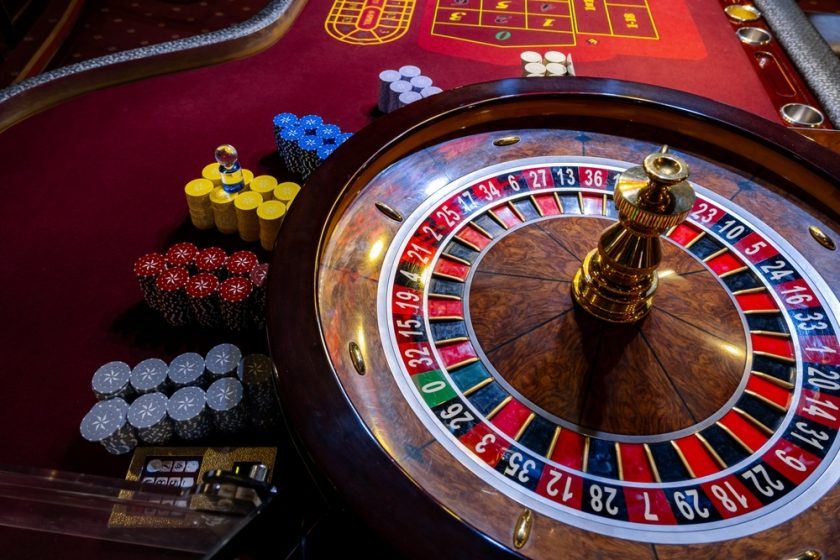
Roulette Numbers Explained: Key Takeaways
- Discover how many numbers are found on different roulette tables.
- Understand the distinctions between European, American, and French roulette.
- Learn how the arrangement of numbers impacts play.
- See how the “house edge” affects your chances.
- Explore betting options and strategies to enhance your experience.
- Gain insight into the fascinating evolution of the roulette table.
Introduction: The Allure of Roulette and Its Numbers
Roulette has intrigued and entertained casino enthusiasts for generations thanks to its suspenseful spin and simple gameplay. Yet, one of the most common questions for beginners is: how many numbers are actually on a roulette table? The answer isn’t always straightforward, as it varies between different roulette versions and between the wheel and table layout themselves. Let's break down everything you need to know about roulette numbers, their organization, and why these details matter.
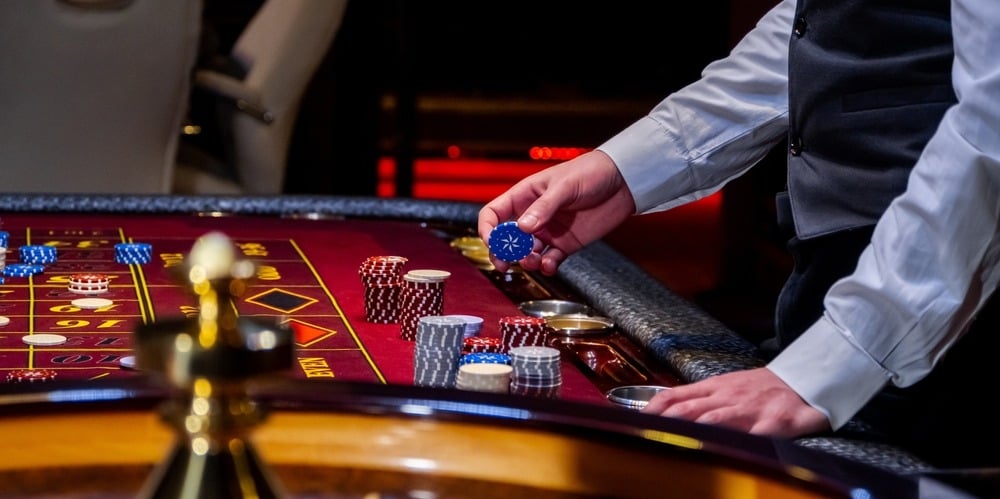
Image Credit: 360VP/Shutterstock
The Origins and Evolution of Roulette
Roulette’s roots trace back to 17th-century France, originating as a byproduct of Blaise Pascal’s quest for perpetual motion. Although his initial design didn’t fulfill its inventor’s vision, the spinning wheel was gradually adapted into a gambling device.
By the late 18th century, recognizable roulette wheels were being used in French casinos, typically featuring both a single zero and double zero-an arrangement still seen in American roulette today. The famous single-zero variant emerged in the 1840s, introduced by François and Louis Blanc in the German town of Bad Homburg, which led to a lower house edge and attracted a wider following throughout Europe.
Roulette Variants: American, European, and French
Modern casinos offer three primary roulette variations, each with a distinct wheel design:
| Roulette Version | Number Range | Total Pockets | Zero(s) | House Edge (%) |
|---|---|---|---|---|
| European Roulette | 1-36 + 0 | 37 | Single Zero | 2.7 |
| American Roulette | 1-36 + 0, 00 | 38 | Single Zero + Double Zero | 5.26 |
| French Roulette | 1-36 + 0 | 37 | Single Zero | 1.35 (even-money bets) |
French roulette shares its number count with the European wheel but adds rules like “La Partage” or “En Prison,” which benefit players further.
The Logic Behind Roulette Wheel Number Placement
Roulette wheels may seem randomly numbered, but the sequence is meticulously crafted to maximize unpredictability and balance:
European Wheel Number Sequence
Standard sequence: 0, 32, 15, 19, 4, 21, 2, 25, 17, 34, 6, 27, 13, 36, 11, 30, 8, 23, 10, 5, 24, 16, 33, 1, 20, 14, 31, 9, 22, 18, 29, 7, 28, 12, 35, 3, 26
Key design features include:
- Alternating high (19-36) and low (1-18) numbers.
- Strict alternation of red and black colors.
- Even and odd numbers evenly distributed.
- Neighboring numbers sum to relatively high values, adding to randomness.
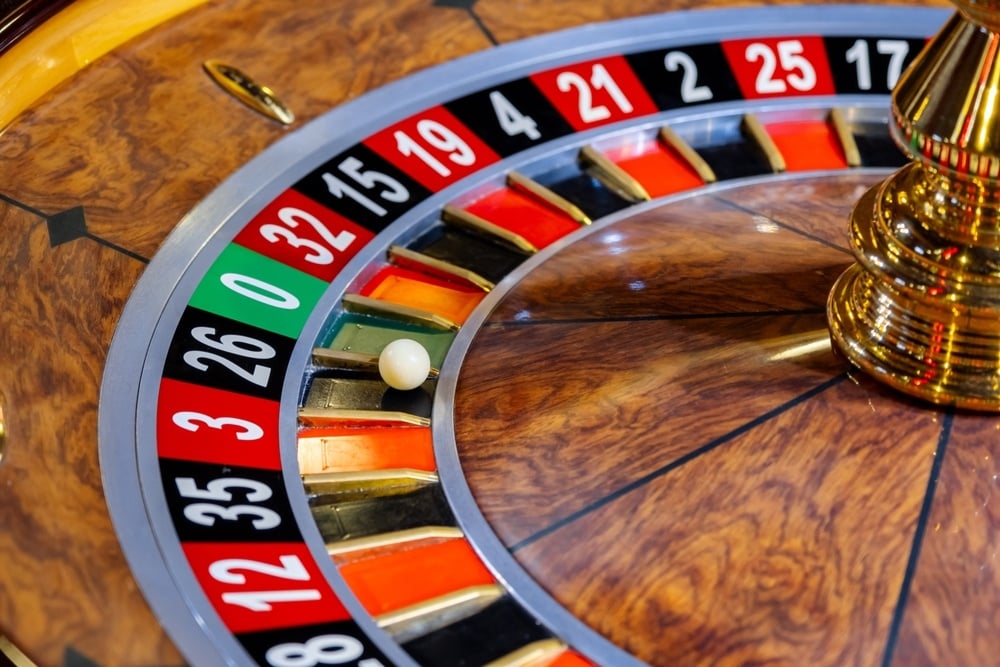
Image Credit: 360VP/Shutterstock
American Wheel Number Sequence
Sequence: 0, 28, 9, 26, 30, 11, 7, 20, 32, 17, 5, 22, 34, 15, 3, 24, 36, 13, 1, 00, 27, 10, 25, 29, 12, 8, 19, 31, 18, 6, 21, 33, 16, 4, 23, 35, 14, 2
The double zero is placed opposite the single zero for balance.
Understanding Layout Asymmetries
While wheels strive for symmetry, certain “sectors” can group high or low numbers, which some players may target. Additionally, the red/black pattern switches midway through the number range. Despite all efforts, mechanical biases in physical wheels (now rare due to strict maintenance) are the only legitimate source of uneven outcomes.
House Edge: How Number Configuration Impacts Casino Advantage
The wheel’s design directly dictates the odds. Here’s how the numbers affect your chances:
- European: 2.7% house edge (1/37)
- American: 5.26% house edge (2/38)
- French: 1.35% house edge on certain bets due to special rules
So, for every $100 staked:
- European roulette keeps $2.70
- American roulette keeps $5.26
- French roulette keeps $1.35 (on even bets)
This makes European and especially French versions preferable if you want the best return.
Types of Roulette Bets and Betting Options
The table layout supports various wagers, classified as “inside” or “outside” bets:
Inside Bets (Targeting Specific Numbers):
- Straight Up: Bet on a single number (payout 35:1)
- Split: Bet on two adjacent numbers (17:1)
- Street: Bet across three consecutive numbers in a row (11:1)
- Corner: Bet on four numbers forming a square (8:1)
- Six Line: Bet covering six numbers across two rows (5:1)
- Trio: Includes the zero(s) with two other numbers (11:1)
- Basket: Only in American roulette - covers 0, 00, 1, 2, 3 (6:1)
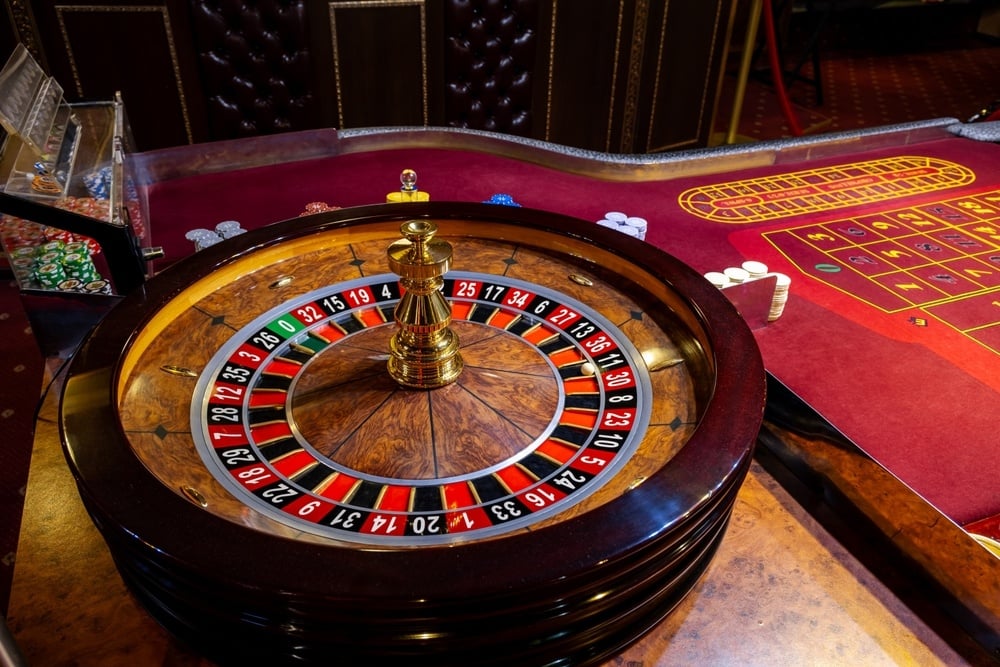
Image Credit: 360VP/Shutterstock
Outside Bets (Broader Coverage):
- Column: Twelve numbers in a vertical column (2:1)
- Dozen: One of three groups of 12 sequential numbers (2:1)
- Red or Black: All numbers of a single color (1:1)
- Odd or Even: All odd or all even numbers (1:1)
- 1-18 / 19-36: Bet on the lower or upper half of numbers (1:1)
Payout Odds and Popular Strategies
Roulette payouts are tactically set to slightly undercut true odds, creating the casino’s advantage. For example, a European straight-up bet pays 35:1 but the real odds are 36:1.
Popular betting strategies include:
- Martingale: Doubling your bet after losses.
- D’Alembert: Incremental bet increases after losses and decreases after wins.
- Number Coverage: Setting multiple bets to cover more of the wheel.
- Section Betting: Focusing on certain wheel sectors.
It’s important to note that no approach can surpass the house edge over time-roulette remains a pure game of chance.
Roulette Numbers and Colors: Their Role and Meaning
Roulette wheels are visually striking due to their color scheme:
- Red pockets: 18 distinct numbers (e.g., 1, 3, 5, 7, 9, etc.)
- Black pockets: 18 distinct numbers (e.g., 2, 4, 6, 8, 10, etc.)
- Green pocket(s): 0 (plus 00 in American roulette)
The reds and blacks support even-money bets, but green zeros are the casino’s secret weapon, as they’re not covered by red/black or other even bets.
Why Certain Numbers Are Considered Special
Some numbers are iconic among roulette players:
- 17: Central position on betting layout, James Bond’s choice
- Red 7: Widely considered a lucky number
- 0: Green zero is a symbol of the casino’s advantage
- Birthdays & Anniversaries: Common picks based on personal dates
- “Hot” numbers: Those that recently won, though this is based on gambler’s fallacy
Regardless of personal superstition or table displays, every number spins with the same probability.
The Mythical “Devil’s Wheel” and Trivia
Roulette is often called the “Devil’s Wheel” because all the numbers from 1 to 36, when added, total 666. This devilish sum only added to the game’s mystique and led to ongoing debates about whether it was coincidence or intentional design.
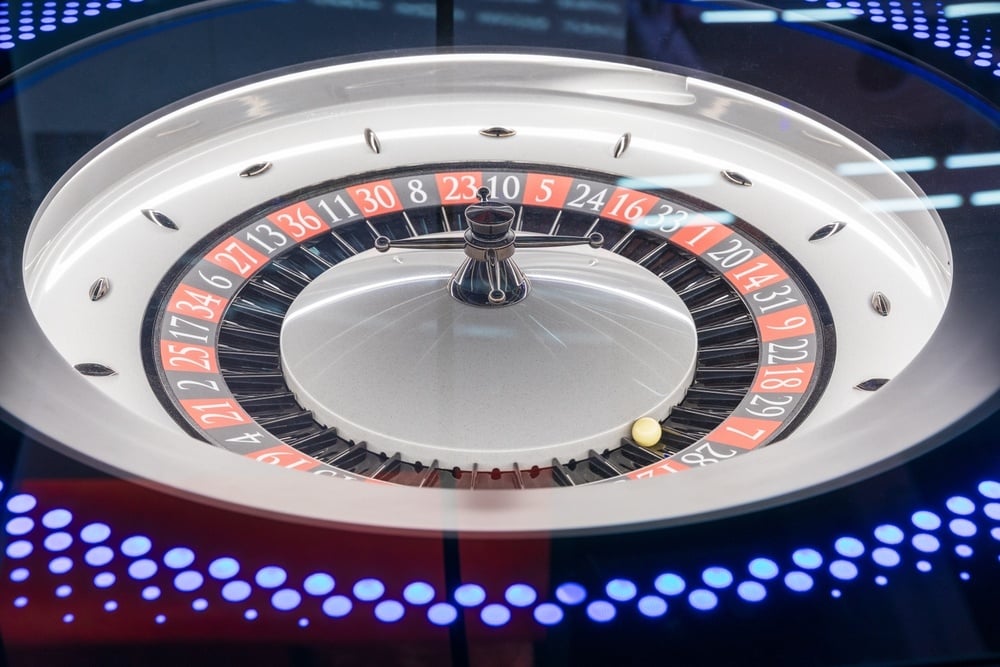
Image Credit: wellphoto/Shutterstock
Intriguing Historical Notes from the World of Roulette
- 19th-century gambler Joseph Jagger famously exploited a biased Monte Carlo wheel with the help of hired clerks.
- Albert Einstein is often quoted as saying the only way to beat roulette is to “steal money when the dealer isn’t looking,” pointing to the certainty of the house edge.
- Charles Wells, another legend, reportedly “broke the bank” at Monte Carlo, though his fortune eventually ran out.
- The word “roulette” literally means “little wheel” in French.
- The single zero was introduced to win over players by offering better odds than rival casinos.
Precision Engineering: How Modern Roulette Wheels Are Built
Reliable roulette play depends on the wheel’s integrity:
- Bases are typically crafted from hardwood or strong synthetic material.
- Metal “frets” separate each pocket and are precision-made for uniformity.
- Wheels are finely balanced and kept level to prevent bias.
- Roulette balls are now made of Teflon or nylon for consistency.
- Rotors spin on low-friction bearings to ensure even movement.
Casinos regularly inspect and refurbish wheels to maintain randomness and fairness.
The Physics of Fairness: Ball Deceleration and Pocket Design
- Dealers spin the wheel and release the ball at consistent velocities.
- Ball slippage and diamond-shaped deflectors (“diamonds”) scatter outcomes.
- Pockets are uniform in depth, giving every number the same chance.
- Precise design ensures the outcome cannot be predicted.
Practical Roulette Betting Tips and Bankroll Management
If you want to get the most from your roulette session, consider these practical guidelines:
- Choose European or French roulette over American to benefit from a lower house edge.
- Balance your bets - inside bets pay more but win less often; outside bets win frequently but pay less.
- Always check table limits before playing.
- Keep strict bankroll limits: set both win goals and loss limits for each session.
- Betting progression systems may increase risk - use with caution and don’t chase losses.
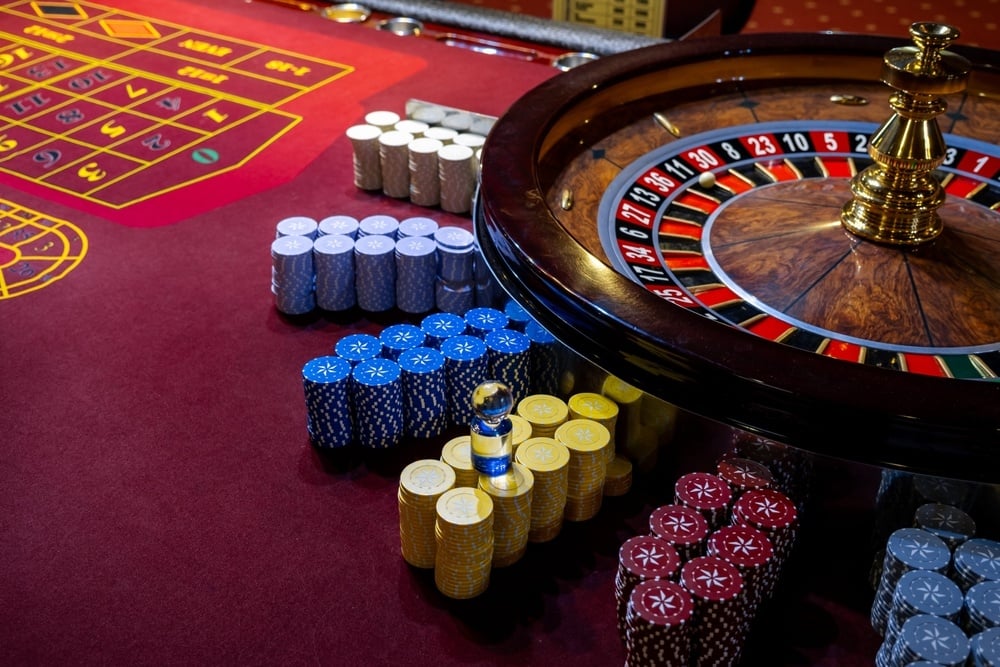
Image Credit: 360VP/Shutterstock
Why Numbers Like 17 and 24 Stand Out
- 17: Popular due to its table position, lucky associations, and several famous wins (including in pop culture).
- 24: Favored for its central numeric value, color placement, and compatibility with certain betting patterns.
Keep in mind: Each spin is purely random - there’s no such thing as a “due” or “hot” number.
Separating Fact from Betting Myths
The belief in lucky or overdue numbers has no statistical basis. Each spin is fully independent, and every number carries the same odds. Displays in casinos showing “hot” or recent numbers are for entertainment only and don’t predict the next result.
Responsible Roulette Play: Budgeting and Self-Control
Play responsibly by:
- Deciding your maximum loss before starting a session.
- Treating gambling as entertainment, not as income.
- Never gambling with borrowed funds or credit.
- Allocating only what you can afford; using cash helps avoid overspending.
- Splitting your bankroll into smaller sessions to extend playtime.
Essential Roulette Table Etiquette
To keep the game enjoyable for everyone:
- Wait until bets are paid before placing new chips.
- Respect minimum and maximum wager limits.
- Be courteous to the dealer and other players; tipping for good service is customary.
- Don’t invade other players’ betting space-ask the dealer for assistance instead.
- Place bets promptly; don’t try to squeeze in late bets.
- Verbally request chips during buy-ins for clarity.
- Remain calm and composed regardless of result.
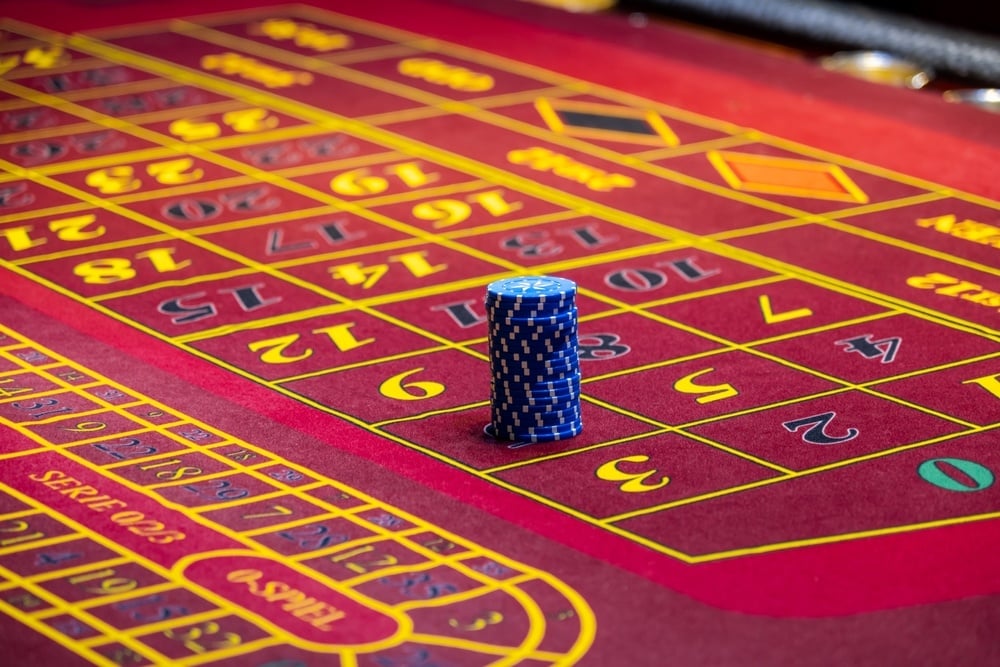
Image Credit: 360VP/Shutterstock
Frequently Asked Questions: Roulette Numbers and Betting
What Do You Win If You Bet $5 on a Number in Roulette?
A straight-up $5 bet on one number pays $175 in winnings plus your initial $5 stake, totaling $180 - but only if your number comes up. The payout is 35:1, but the odds are slim: 1 in 37 (European) or 1 in 38 (American). Some casinos allow single-number bets as low as $1.
Is Roulette Purely a Game of Luck?
Roulette is almost entirely luck-based. The outcome is determined by physical forces beyond any player’s control. No skill, strategy, or observation can change the wheel’s result under fair conditions.
Do Certain Numbers Win More Often?
No. If a wheel is properly balanced and maintained, each number has precisely the same odds as every other. The appearance of “hot” numbers is simply random statistical variation.
Why Doesn’t Roulette Pay 36 to 1?
A win on a single European number pays 35 to 1. The real odds of winning are 36 to 1, so the lower payout ensures the casino’s edge. If casinos paid true odds, they’d have no advantage over the player.
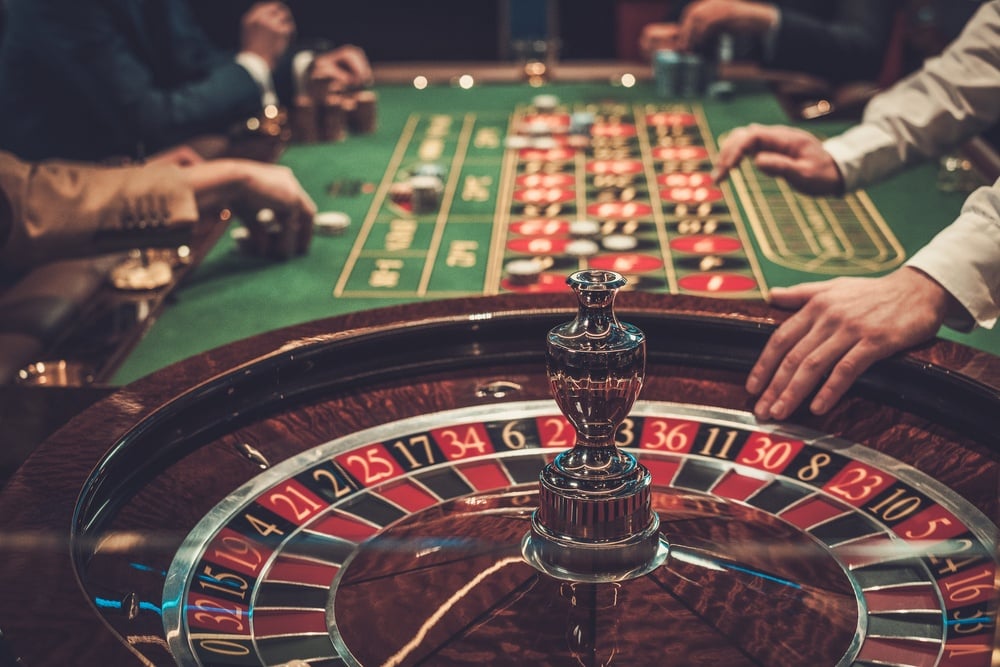
Image Credit: 360VP/Shutterstock
Conclusion: The Significance of Roulette Numbers
Understanding how many numbers are on a roulette table is about more than memorizing a chart - it’s about appreciating the game’s structure, history, and odds. Whether you play the European, American, or French version, you now know why the layout matters and how it shapes your betting prospects.
Learning the intricacies of the numbers, color patterns, and bet types not only informs better play but also deepens your enjoyment of one of the world’s great games of chance. Remember: in roulette, every spin rewrites the story - and that’s what keeps players coming back for more.
Title Image Credit: 360VP/Shutterstock













